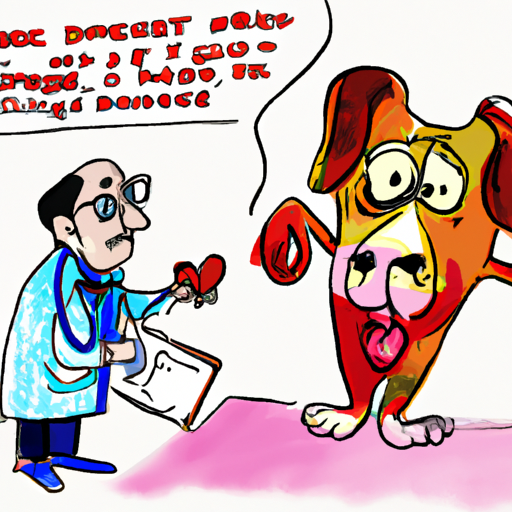Introduction
You, as a dog owner, understand that your furry friend is more than just a pet—they’re a part of your family. Keeping them healthy and happy is your top priority. Therefore, understanding the various health risks that your canine companion may face is crucial. One such health risk is heart disease, a condition that can affect dogs of all breeds and ages.
What is Heart Disease in Dogs?
Heart disease in dogs, much like in humans, refers to a range of conditions that affect the heart’s structure or function. It can be congenital, meaning your dog was born with it, or acquired, meaning it developed over time. In either case, heart disease can significantly affect your dog’s quality of life.
The most common types of heart disease in dogs are:
- Mitral valve disease
- Dilated cardiomyopathy
- Congenital heart disease
Causes and Risk Factors
Several factors can contribute to the development of heart disease in dogs. These include:
- Age: Older dogs are more likely to develop heart disease than younger ones.
- Breed: Some breeds, like Cavalier King Charles Spaniels and Boxers, are genetically predisposed to certain types of heart disease.
- Diet: Just as in humans, a high-fat, high-sodium diet can contribute to heart disease in dogs.
- Lifestyle: Dogs that are overweight or don’t get enough exercise are at higher risk.
| Risk Factor | Explanation |
|---|---|
| Age | Older dogs are at higher risk |
| Breed | Some breeds are predisposed |
| Diet | High-fat, high-sodium diet can contribute |
| Lifestyle | Overweight, lack of exercise increases risk |
Symptoms and Diagnosis
Recognizing the symptoms of heart disease in dogs is the first step towards getting them the help they need. Symptoms can vary greatly depending on the type and severity of the disease, but common signs include:
- Coughing
- Difficulty breathing
- Fatigue
- Loss of appetite
If you notice any of these symptoms in your dog, it’s essential to seek veterinary care as soon as possible. The vet will likely perform a physical exam, take a medical history, and may recommend additional tests such as blood tests, x-rays, or an echocardiogram to confirm the diagnosis.
Prevention and Treatment
While there’s no surefire way to prevent heart disease in dogs, there are steps you can take to reduce your dog’s risk. These include:
- Feeding them a balanced, nutritious diet.
- Ensuring they get regular exercise.
- Regular vet check-ups.
Treatment for heart disease in dogs depends on the type and severity of the disease, but it may involve medication, lifestyle changes, or in some cases, surgery.
FAQ
Q: Can heart disease in dogs be cured?
A:
While heart disease can often be managed with treatment, it’s generally not curable. The goal of treatment is to improve your dog’s quality of life and slow the progression of the disease.
Q: Is heart disease in dogs contagious?
A:
No, heart disease is not contagious. It’s a condition that affects the heart’s structure or function.
Q: Can heart disease in dogs be prevented?
A:
While there’s no guaranteed way to prevent heart disease, maintaining a healthy lifestyle can significantly reduce your dog’s risk.
Q: What breeds are most at risk for heart disease?
A:
Certain breeds, like Cavalier King Charles Spaniels and Boxers, are more prone to certain types of heart disease, but it can affect any breed.



